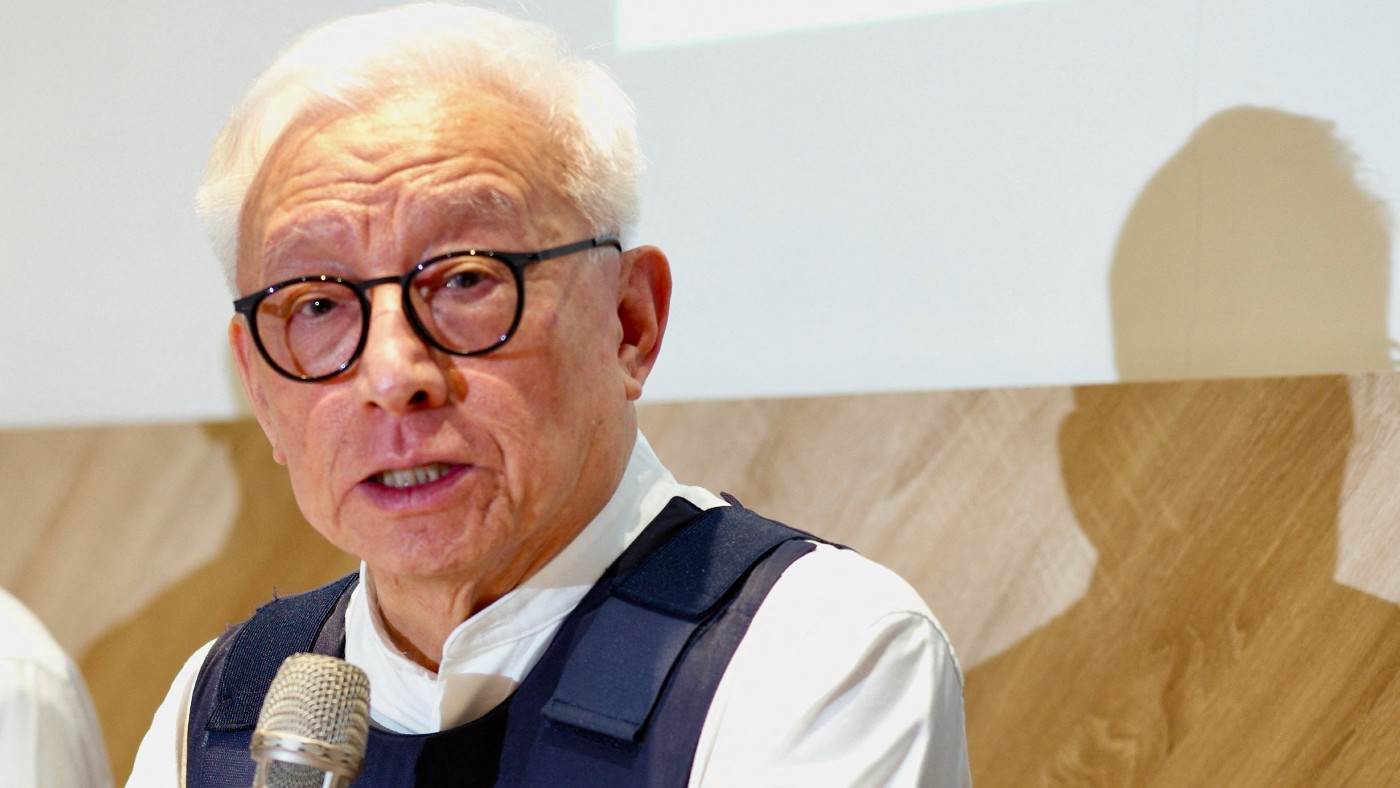Robert Tsao: the billionaire funding citizen snipers in Taiwan
Tech giant is ‘wading into the greatest battle of his life’ by confronting China

A free daily email with the biggest news stories of the day – and the best features from TheWeek.com
You are now subscribed
Your newsletter sign-up was successful
One of Taiwan’s richest men has offered one billion Taiwanese dollars to train a defence force of “civilian warriors” and “common folk” marksmen to help guard against any invasion by Beijing.
Donning a helmet and bulletproof vest for his announcement, the 75-year-old tech billionaire, who founded the chipmaker UMC, said: “They will have to come over my dead body before they can control Taiwan.”
Childhood poverty
Although he was born in Beijing in 1947, Tsao and his family moved to the island of Taiwan when he was one. They were part of the “mass exodus” of supporters of the nationalist forces of Chiang Kai-shek after their defeat by Mao Zedong’s communists, said The Times.
The Week
Escape your echo chamber. Get the facts behind the news, plus analysis from multiple perspectives.

Sign up for The Week's Free Newsletters
From our morning news briefing to a weekly Good News Newsletter, get the best of The Week delivered directly to your inbox.
From our morning news briefing to a weekly Good News Newsletter, get the best of The Week delivered directly to your inbox.
“Growing up in poverty”, Tsao was the first of the family’s six children to study at the “prestigious” National Taiwan University, said the Financial Times (FT). He gained degrees in electrical engineering and management, before joining the government’s Industrial Technology Research Institute, which was behind Taiwan’s dominant semiconductor industry.
In 1980 he founded UMC, which made him his fortune. However, noted Sky News, the company has distanced itself from its founder, saying in a statement that he “retired from UMC more than 10 years ago” and “has nothing to do with UMC”.
Political views
Tsao, who was once reportedly worth 81bn Taiwanese dollars (£2.3bn), used to be a passionate supporter of unifying Taiwan with China. He “tried to use business to heal the bitter divisions between the island and the mainland”, said The Times.
Explaining his activity, he said he “started a campaign to convince China that if they believe reuniting Taiwan is of such importance, they should do it in a peaceful, civilised way”.
A free daily email with the biggest news stories of the day – and the best features from TheWeek.com
As part of his crusade, he helped build factories in China, gave lectures to Chinese audiences and was “entertained by the Communist leadership in Beijing”. He has now peformed an about-turn, returning home to Taiwan from self-imposed exile in Singapore.
Greatest battle
He said his wake-up call over Beijing began in July 2019. He was living in Hong Kong at the time of the Yuen Long incident there, when “police turned a blind eye” as triad gangsters attacked passengers at a train station with metal and wooden sticks after a demonstration.
“When I saw those ruffians mobilised to beat up all those innocent and vulnerable people I was infuriated,” he told The Times. “After Yuen Long, I decided to leave Hong Kong. I will never go back or to Macau or China, as long as the communists are still in control.”
Tsao went so far as to say: “You have to make people understand that the Chinese Communist Party in nature are just like a mafia – they are a crime syndicate disguised as a national government.”
In his 50-year-long career, Tsao has “duelled with industry rivals, challenged the Taipei government, struggled with prosecutors and clashed with politicians”, said the FT, but now he is “wading into the greatest battle of his life: taking on China”.
What happens next remains to be seen, as it is not clear if the authorities in Taiwan welcome Tsao’s plan to fund snipers. His request for firing ranges to train “hundreds of thousands of civilian fighters” has so far been denied.
-
 6 of the world’s most accessible destinations
6 of the world’s most accessible destinationsThe Week Recommends Experience all of Berlin, Singapore and Sydney
-
 How the FCC’s ‘equal time’ rule works
How the FCC’s ‘equal time’ rule worksIn the Spotlight The law is at the heart of the Colbert-CBS conflict
-
 What is the endgame in the DHS shutdown?
What is the endgame in the DHS shutdown?Today’s Big Question Democrats want to rein in ICE’s immigration crackdown
-
 Epstein files topple law CEO, roil UK government
Epstein files topple law CEO, roil UK governmentSpeed Read Peter Mandelson, Britain’s former ambassador to the US, is caught up in the scandal
-
 Iran and US prepare to meet after skirmishes
Iran and US prepare to meet after skirmishesSpeed Read The incident comes amid heightened tensions in the Middle East
-
 Israel retrieves final hostage’s body from Gaza
Israel retrieves final hostage’s body from GazaSpeed Read The 24-year-old police officer was killed during the initial Hamas attack
-
 China’s Xi targets top general in growing purge
China’s Xi targets top general in growing purgeSpeed Read Zhang Youxia is being investigated over ‘grave violations’ of the law
-
 Panama and Canada are negotiating over a crucial copper mine
Panama and Canada are negotiating over a crucial copper mineIn the Spotlight Panama is set to make a final decision on the mine this summer
-
 Why Greenland’s natural resources are nearly impossible to mine
Why Greenland’s natural resources are nearly impossible to mineThe Explainer The country’s natural landscape makes the task extremely difficult
-
 Iran cuts internet as protests escalate
Iran cuts internet as protests escalateSpeed Reada Government buildings across the country have been set on fire
-
 US nabs ‘shadow’ tanker claimed by Russia
US nabs ‘shadow’ tanker claimed by RussiaSpeed Read The ship was one of two vessels seized by the US military